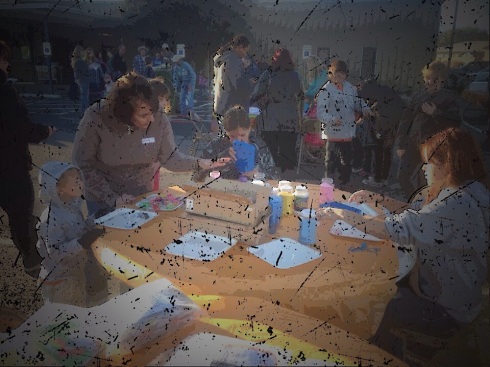I live in a great neighborhood. It’s relatively peaceful. Sure, from time to time there is excitement and I may need to call the police on someone causing mischief, but I rarely ever feel like this neighborhood is dangerous. It’s a great neighborhood for raising my kids.
The church building where I preach on Sundays and Wednesdays is in this neighborhood. I find this to be super convenient, but as I look at the demographics of our church membership I see very few people who come from within our neighborhood.
I know my next door neighbors. I know the family across the street and a few doors down from them too. I know a few of the neighbors behind the church building by name. Yet, I don’t have a real, meaningful relationship with any of them.
I feel pretty convicted about this.
You see, this church has functioned from this location for many many years. I’m not sure how many preachers were here before me, but our congregation is mostly made up of people who live outside our neighborhood and even our town.
It’s time for this to change.
As Christians, we are called to live in the world around us in such a way that people know that Jesus is the messiah. We aren’t called to be people who shrink back in fear or even in routine and make excuses for why we don’t know our neighbors.
I believe that if a church has a building then the primary mission field of that church should be the neighborhood the building is located within. Each member should be missionaries within their own neighborhoods as well, but if the church doesn’t have a good relationship with its neighbors, then what kind of message does that portray?
Some of you may know people who live in the neighborhood around the church building. Some of you may even live in this same neighborhood. What can you do to enhance our ability to reach out locally? What should we do as a church to help you reach your friends and neighbors?
Cities aren’t taken for The Lord without strategy. When Jesus sent out the apostles after the resurrection, He told them they would be His witnesses in Jerusalem (where they currently were), in Judaea and Samaria (the outlying towns and regions), and to the ends of the earth (Acts 1:8).
As a church, we should follow the same pattern. We should be intentionally engaging the neighborhood where our facilities are located first. Then we should move into other neighborhoods in the town where our congregation gathers. After that, when that town is reached, we should move into other towns. When all of that is done, then we should be sending out people to far off regions.
Engaging our neighborhood doesn’t mean door-knocking either. It means living and working and functioning within that neighborhood in such a way that relationships are built and love is shown. It is not engaging in handouts; it is inviting people into community. Engaging a neighborhood means you’re loving your neighbor with no strings attached. When they see your intentional, counter-cultural way of love, they’re going to want to know why you’re like that. Then you have been invited by them to tell them of the One who loved you first, Jesus Christ.
So, here’s our situation. We are a church that isn’t truly engaging our neighborhood. That wasn’t Jesus’ plan for us. How can we make a change here? The Aztec church of Christ puts on a block party once a year, and that is gaining popularity. What else can we do to truly engage on personal levels to love our neighbors?
We are a church trying to love God, love others, and be like Jesus. So let’s start taking steps to truly do these things.
Do you have an idea on how to reach out to the neighborhood around our congregation? Maybe you’re reading this online and you have ideas for how to begin this where you live. Talk to your pastor(s). But don’t just give suggestions; volunteer to help make those suggestions a reality.
To win a city you begin with a neighbor.

